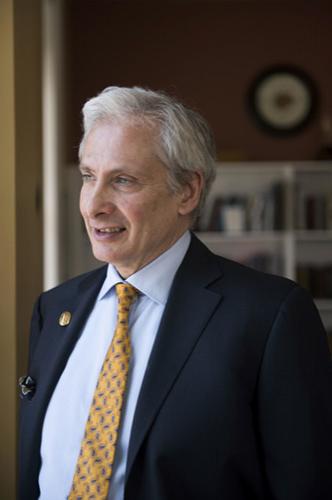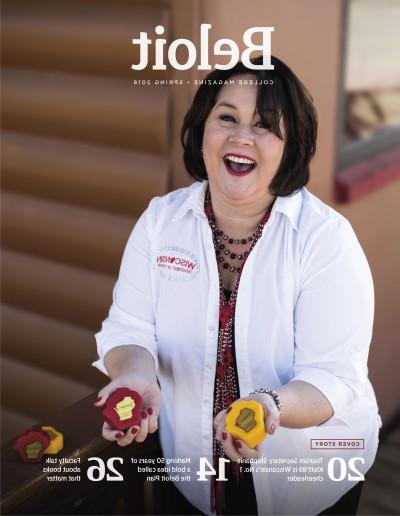言论自由和思想市场

成年人就像雪花!
但接下来的故事是这样的. The survey also found that among college students, 72 percent said that colleges 不应该 be able to establish policies restricting political views that are upsetting or offensive to certain groups. 然而,69%的人认为大学 应该 be able to establish policies that restrict the use of slurs and other language that are intentionally offensive to certain groups. 嗯.
We 应该 pay attention to that last response in particular as we navigate the issue of free speech at 贝洛伊特, 我们也应该问问自己, 作为一所大学, 能做得更好吗, when even the top colleges in the country have crafted imperfect policies around freedom of expression.
The most compelling argument for freedom of speech is probably contained within the “marketplace of ideas” thesis. 随着争论的进行, worse ideas will be driven from the idea marketplace by better ideas in the same way that less efficient firms are driven from goods and services markets by 更多的 efficient firms. Freedom of entry into the marketplace—whether the markets for ideas or goods and services—is the key. As an economist, I admit to a healthy affinity for the direction of this thinking. No wonder the University of Chicago with its army of free-market Nobel laureates holds pride of place with those who favor this line of reasoning.
But the University of Chicago model is remarkably silent about a long history on American college campuses of specific subsets of society not being allowed to enter the ideas marketplace either at all or as full-blown members. If voices are systemically missing or diminished within the marketplace of ideas, it is not at all obvious that the markets will “clear” (i.e. 到达一个理想的地方). The existence of barriers to entry creates a potential market failure. 这是, 可能会出现系统性的例子, 可能有很多人, where bad ideas are not driven out by good ideas in any sort of timely way.
在商品和服务市场, 当有进入壁垒时, 通常会提出监管解决方案. Systemic silencing of particular voices, in a similar vein, could justify regulatory measures. Isn’t this all that (69 percent of) today’s college students are really saying? If we cannot create a credible campus model that gives historically marginalized groups an equal voice in the marketplace of ideas, we 应该 consider a regulatory model that restricts the ability of others to discredit the humanity of members of those marginalized groups.
Recognition of this tension is not new to higher education. In 1974, Yale University took up the question of freedom of speech on private college campuses [see The Report of the Committee on Freedom of Expression at Yale chaired by C. 范恩·伍德沃德(斯特林历史学教授). 虽然认识到, “If freedom of expression is to serve its purpose, 这就是大学的目的, 它应该寻求增进理解. Shock, hurt, and anger are not consequences to be weighed lightly. No member of the community with a decent respect for others 应该 use, 或者鼓励别人使用, slurs and epithets intended to discredit another’s race, 少数民族, 宗教, 或性.” Even still, they ended up in the same place as Chicago. They concluded (with dissent) that freedom of expression had a higher order value than any other at Yale, 即使有潜在的成本.
在过去几年里, increased political Balkanization in the United States has heightened our awareness to claims of political “silencing."除此之外, 火, 监察组织, has developed a database of campus “disinvitations” that is worth looking at, if for no other reason than to see the eclectic array of reasons for disinvitations.
那么,伯洛伊特学院将何去何从? We have not engaged ourselves 作为一所大学 about our institutional position on free inquiry and freedom of . We have some policies that are mostly Chicago and Yale-ish but pretty well buried among many other policies. There is little in the way of an articulated rationale for what we do.
In a world in which constructive dialogue is so rare and in which the essential human skills of listening and hearing are in such short supply, it is probably a good time for the college to undertake this conversation. As a starting point, I ask any of you reading this magazine to send me your thoughts. I am certain I will learn a great deal from those of you willing to help. 请继续关注更多内容.
在查平杂乱的办公桌前,
——斯科特·比尔曼总统
presidentsoffice@fivethousand.net




